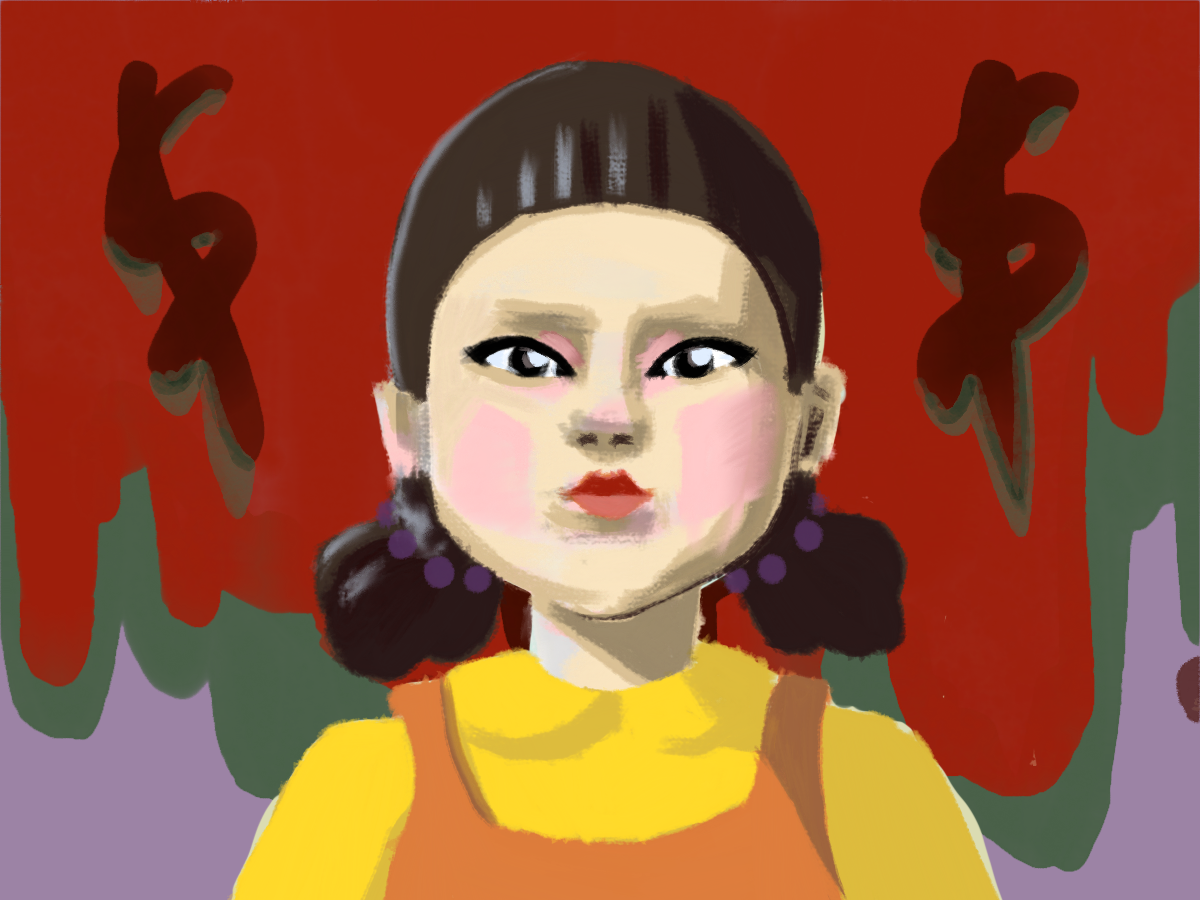Squid Game has captivated audiences across the world with it’s twisted mix of Korean childhood games and violent massacres, but the show’s hidden message says more than audiences might think
Warning: Spoilers ahead, but no violent details will be discussed.
If there is one series that has been on everyone’s lips, it’s no doubt the record-breaking Netflix show Squid Game. With more than 111 million viewers across the world, the visionary Korean series by Hwang Dong-hyuk has turned into the streaming service’s biggest debut show of all time.
The show is a striking mix of violence, pastel-coloured playgrounds and cinematic suspense, exhibiting masterful storytelling throughout. Despite only having nine episodes, the plot allows for immense character development; no one is painted one-dimensionally in Hwang’s explosive universe. In fact, the human complexity of each character is possibly one of the show’s greatest strengths.
The main character, Seong Gi-hun, with his irresponsible spending habits and poor parenting skills, doesn’t immediately tug at the audience’s heart strings; however, as the game progresses, we discover his light-hearted humour, good intentions and the almost foolish extent of his trust, all of which end up endearing him to us.
Meanwhile, the main character’s childhood best friend, Cho Sang-woo, isn’t the kind of person we would expect to fall into financial ruin. A business graduate at the top of his class, Cho is intelligent and clearly ambitious, but he finds himself trapped by excessive debt after his investments and business plans go wrong.
The range and contrast of characters prove that it isn’t only the most vulnerable which are affected by our society’s economic system. In fact, the show does a great job of showing a compelling and deeply symbolic interpretation of modern capitalist society overall.
For every single character, the world beyond childhood ultimately becomes a competitive hamster wheel in the search for economic stability. Eventually, financial failure marks their inevitable downfall into oblivion.
At first glance, it might be our instinct to blame the characters for their demise. It can be tempting to dismiss the players of the game as people willing to ditch their moral compass for money — but Hwang highlights an important distinction, making it clear that it’s not simply greed driving the players. When each person stares at the 45.6 billion won reward ($38.6 million USD), each one of them sees a different kind of salvation.
Abdul Ali, a Pakistani immigrant in the show, goes to South Korea in search of a better life, but is trapped by an exploitative boss. Unable to provide for his wife and newborn son, he joins the game to provide for his family.
One of the show’s more reserved characters, Kang Sae-byeok, is a North Korean defector. We are told that she flees North Korea with her little brother in search of a better life, but she ends up losing all of her money trying to broker an escape plan for her mother, who was returned to North Korea.
Kang turns to the game as a way to get her brother out of the orphanage he’s living in and rescue her mother — she has no great plans for spending the prize money otherwise. When asked about her wildest ambition she simply says she’d visit “Jeju Island” a South Korean tourist destination she once saw on the TV.
The point is, Hwang’s characters are not bad people, they’re just human. Their circumstances and poor financial decisions don’t mean that they deserve to live in perpetual poverty. The real question is why the capitalist system gives them no chance at redemption.
Much like in the game, if they stumble or fall, they end up eliminated from the race.
Squid Game might seem like a radical alternate universe at times, but as viewers we’re being asked to compare our society with that in the game; on the one hand you have the game exploiting people’s desperation for entertainment, on the other you have our society exploiting people through loans, gambling and debt.
At least the game asks for the players’ consent before participating, and offers them some kind of financial compensation. Meanwhile, capitalist society fails to offer financial freedom to every character on the show, and never asks for consent before imposing itself upon them.
Society’s economic disparity is so evident on the show, that the rich sponsors of the game are convinced that they are doing the players a favour by creating a game where there is a small chance for them to improve their lives — even though the consequence is death.
Despite this, the show provides us with glimpses of hope in the form of individual acts of kindness. Beyond the violent executions and dramatic blood-splatterings, several characters display a level of compassion which has no other reason than a core desire to be kind.
Throughout the show, Seong consistently watches out for Oh Il-nam, an elderly man hopelessly participating in the games. Oh’s vulnerability is in sharp contrast to the game’s violence, and his fragility ends up moving Seong into aligning with him. Even though we know that the alliance is not strategic, we still root for Oh’s well-being because he appeals to our humanity.
Creator Hwang gives us several other glimpses at the characters’ better nature, early on in the show we see Ali rescue Seong during the red light, green light game by preventing his fall when he accidentally trips while running. By holding on to Seong, Ali risks his own life, but this one act of courage allows the main character to keep playing the game.
The insinuation is that, although human nature might have ruthlessness, it also has kindness. Our economic and social systems can bring out either one of these two streaks, and in an ideal world — one where the Squid Game wouldn’t seem like a possibility — our society would guide us into being better, more compassionate people, where economic ruthlessness alone doesn’t determine our fate.
Graphic by James Fay




